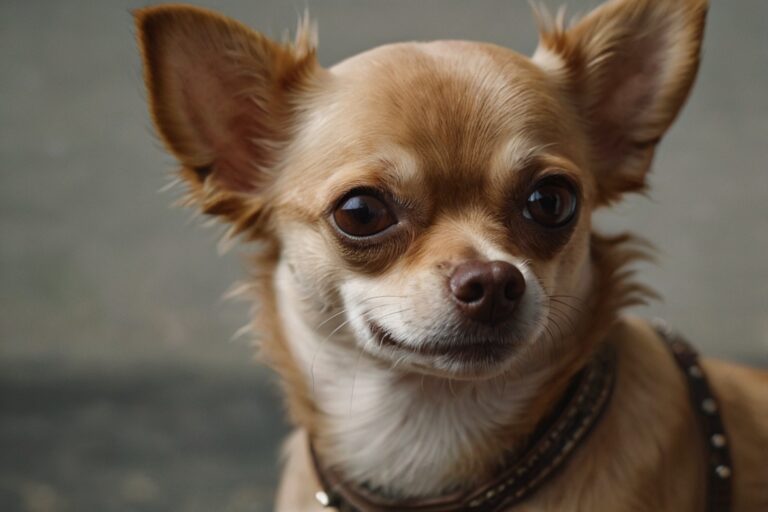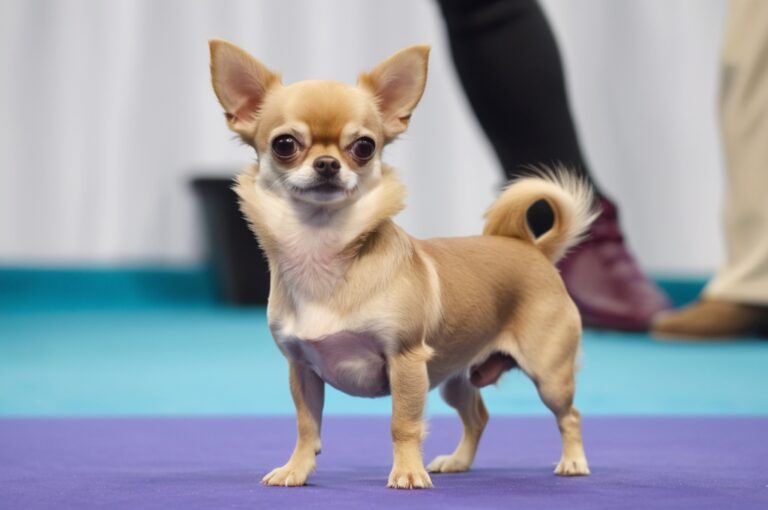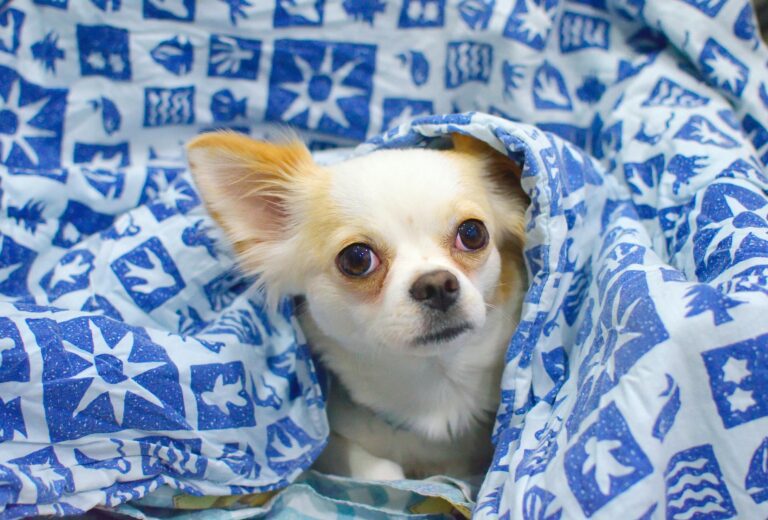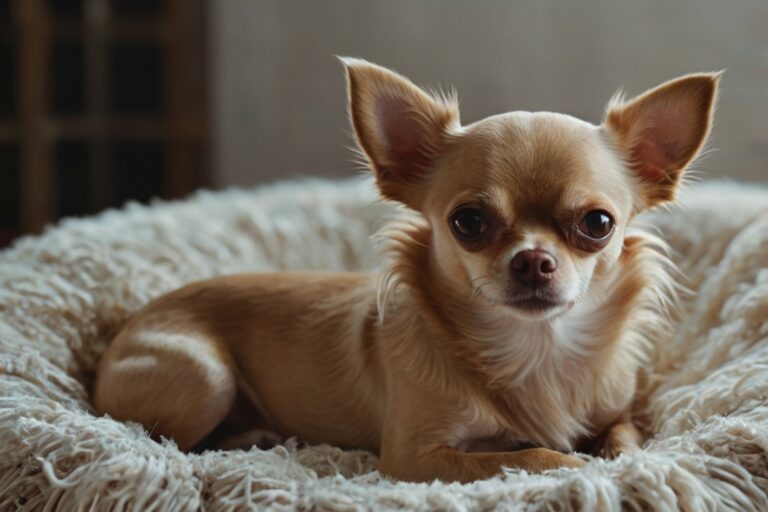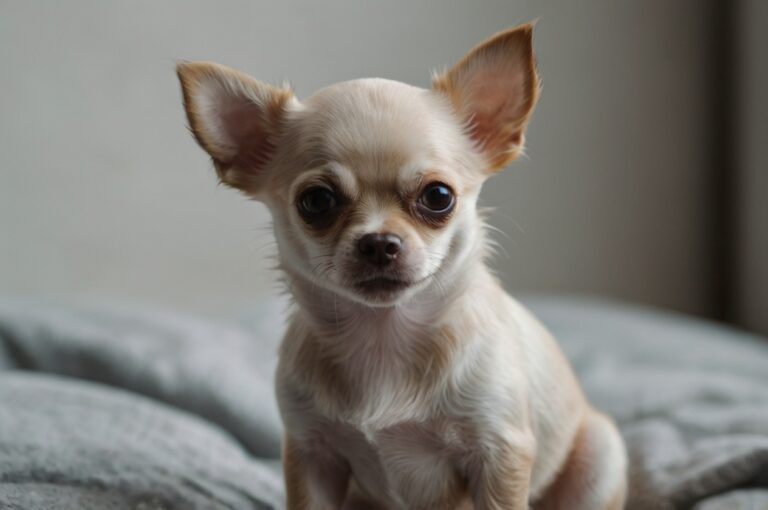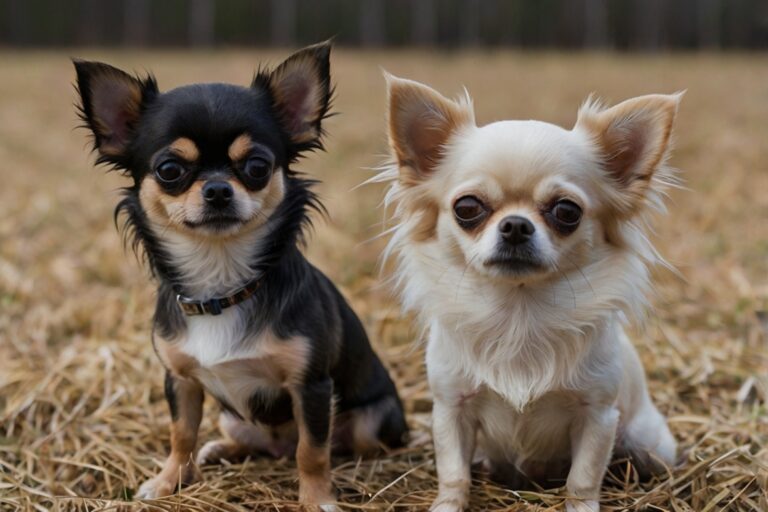Essential Chihuahua Puppy Care: A Complete Guide
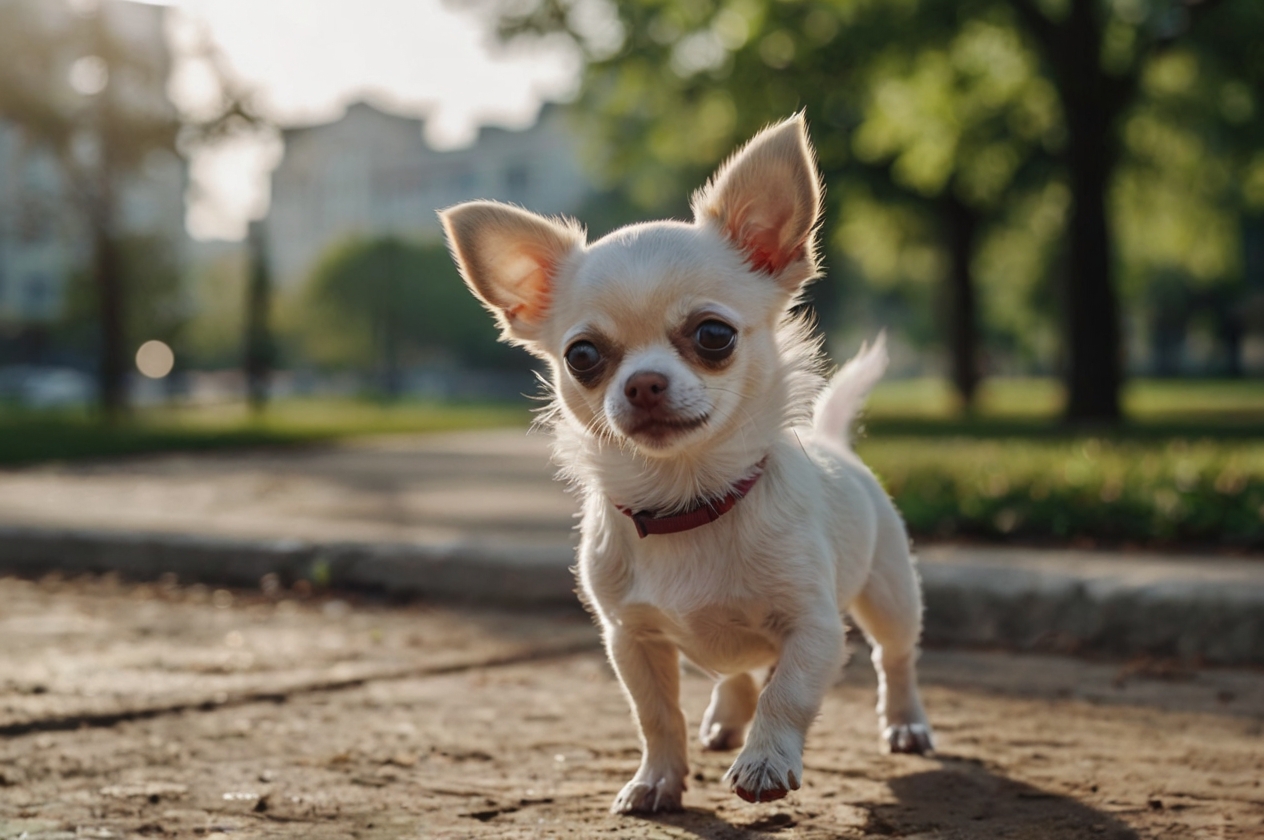
Key Takeaways:
- Chihuahua puppies require special attention to ensure they grow up healthy and happy. Providing the right care from the start is key to their well-being.
- Understanding their socialization, training, and health care needs will help in raising a well-adjusted Chihuahua. It’s crucial to be patient and consistent throughout the puppy stage.
- Creating a safe and comfortable environment for your Chihuahua puppy will enhance their physical and emotional development, ensuring they feel secure in their new home.
1. Setting Up a Safe Environment for Your Chihuahua Puppy
Creating a safe environment for your Chihuahua puppy is essential for their safety and comfort. Chihuahuas are small and fragile, so making sure their space is secure is the first step towards raising a happy puppy.
1.1 Puppy-Proofing Your Home
Puppy-proofing your home is the first step to ensuring your Chihuahua stays safe. Due to their small size, Chihuahuas are prone to accidents if left unsupervised in unsafe environments. Start by removing any small objects that could be swallowed, covering electrical cords, and blocking off areas where they could get trapped. Consider using baby gates to limit their access to unsafe parts of your home.
You should also check for any toxic plants or household chemicals that could be harmful to your puppy. Place these items out of reach or in locked cabinets. Keeping your Chihuahua’s space clean and free of clutter will help prevent injuries and ensure they have a safe environment to explore.
1.2 Providing a Comfortable Sleeping Area
A comfortable sleeping area is crucial for your Chihuahua puppy’s well-being. Chihuahuas are known for their love of warmth and comfort, so choose a cozy bed that is appropriately sized for a small breed. The sleeping area should be placed in a quiet, draft-free part of the house to provide a sense of security.
Consider adding a soft blanket to the bed to keep your Chihuahua warm. Chihuahuas have a low tolerance for cold temperatures, so it’s important to make sure they stay warm, especially at night. Avoid placing their bed in high-traffic areas, as too much noise or activity can cause stress and make it difficult for your puppy to rest.
1.3 Creating a Safe Play Area
Chihuahua puppies are energetic and curious, which makes having a designated play area essential. This play area should be free of sharp objects and small items that could pose a choking hazard. Use pet-safe toys to keep your Chihuahua entertained, and rotate the toys regularly to keep their environment interesting.
A playpen can be an excellent solution for keeping your Chihuahua puppy safe while allowing them to play. It provides a contained area where they can explore without the risk of getting hurt. Make sure the play area is well-supervised, and always remove any toys that show signs of wear to prevent accidents.
2. Socialization and Training
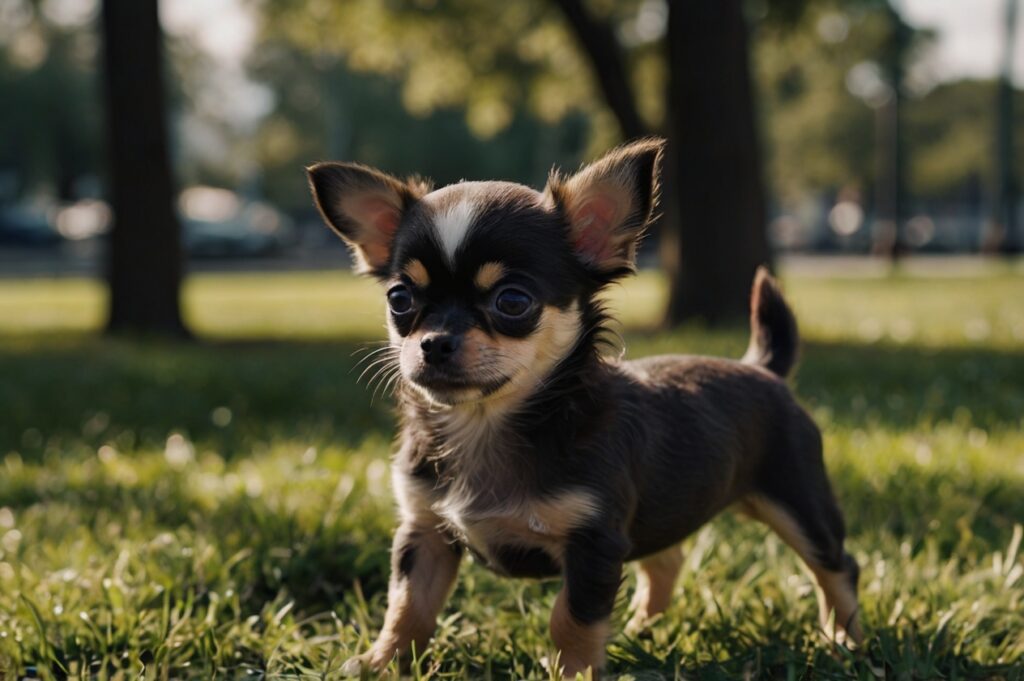
Socializing and training your Chihuahua puppy from an early age is crucial for their development. These processes help your puppy learn acceptable behavior and reduce the chances of developing fear or aggression later in life.
2.1 Introducing Your Puppy to New Experiences
Socialization is the process of introducing your Chihuahua puppy to different experiences, people, and environments. This helps them become well-adjusted and prevents behavioral issues such as fearfulness or aggression. Start by introducing your puppy to different people, including children, and exposing them to various sights and sounds in a controlled and positive manner.
Chihuahuas can be wary of strangers, so it is important to introduce them slowly and ensure each experience is positive. Rewarding your puppy with praise or treats when they remain calm and confident during new experiences will help reinforce good behavior. The more social experiences your Chihuahua has during their early months, the more adaptable they will be as adults.
2.2 Basic Training Commands
Teaching basic commands is an important part of raising a well-behaved Chihuahua. Commands such as “sit,” “stay,” and “come” are fundamental and will help you manage your puppy’s behavior as they grow. Chihuahuas are intelligent and can learn quickly with consistent training and positive reinforcement.
Use treats and praise as rewards when your puppy follows a command. Training sessions should be kept short and positive, as Chihuahuas can easily become bored or frustrated. Practicing commands regularly will help your Chihuahua understand what is expected of them and will improve their overall behavior.
2.3 House Training
House training can be one of the more challenging aspects of raising a Chihuahua puppy, but consistency is key. Establish a routine by taking your puppy outside to the designated potty area at regular intervals, especially after eating, drinking, or waking up from a nap. Reward your puppy with praise or treats when they successfully go to the bathroom outside.
Accidents are bound to happen, so it’s important to be patient and avoid punishing your Chihuahua. Instead, clean up accidents thoroughly to remove any lingering scent that might encourage them to use the same spot again. With time, your puppy will learn the appropriate place to relieve themselves, and house training will become easier.
3. Grooming and Health Care
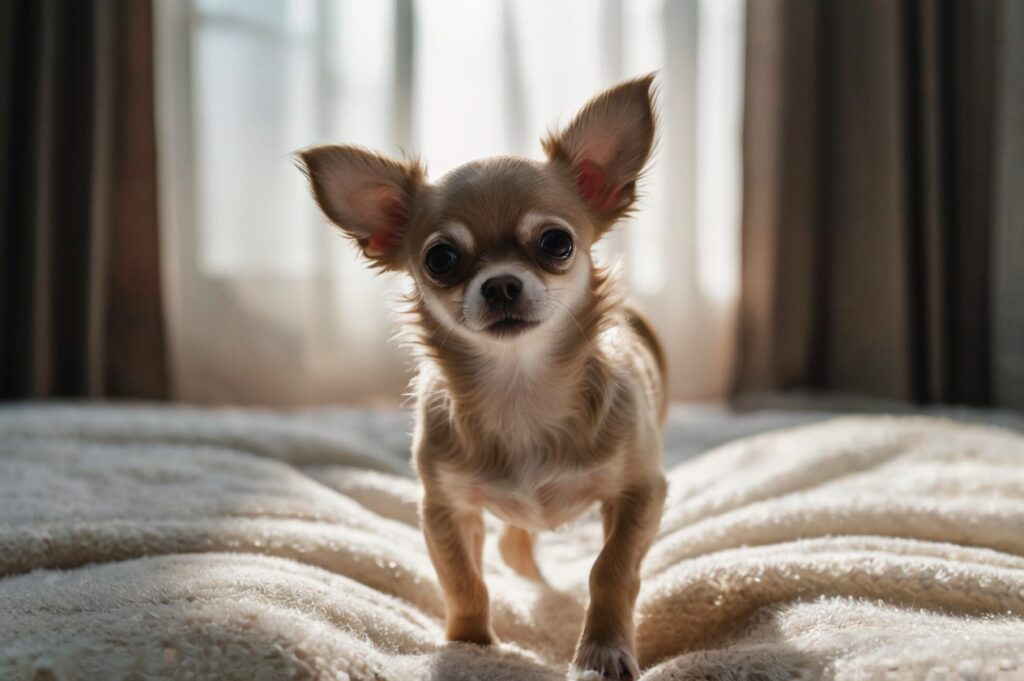
Proper grooming and health care are essential for keeping your Chihuahua puppy healthy and comfortable. Starting grooming routines early helps your puppy become accustomed to being handled and makes the process easier as they grow.
- Brushing and Coat Care: Chihuahuas can have either a smooth or long coat, and each requires different grooming techniques. Smooth-coated Chihuahuas need brushing once a week to remove loose hairs, while long-coated Chihuahuas need more frequent brushing to prevent matting.
- Bathing: Bathe your Chihuahua every 3 to 4 weeks using a gentle puppy shampoo. Avoid over-bathing, as it can strip natural oils from their skin, leading to dryness. Be sure to dry your puppy thoroughly, as Chihuahuas are prone to feeling cold.
- Nail Trimming: Trimming your Chihuahua’s nails is an important part of their grooming routine. Long nails can cause discomfort and lead to joint issues. Use a nail clipper designed for small dogs, and trim the nails every 3 to 4 weeks to keep them at a comfortable length.
| Grooming Task | Frequency | Notes |
|---|---|---|
| Brushing | 1-3 times per week | Use appropriate brush for coat type |
| Bathing | Every 3-4 weeks | Use gentle puppy shampoo |
| Nail Trimming | Every 3-4 weeks | Avoid cutting too close to the quick |
3.1 Brushing and Coat Care
Brushing your Chihuahua puppy regularly is crucial for keeping their coat healthy and reducing shedding. Smooth-coated Chihuahuas require brushing once a week to remove loose hairs, while long-coated Chihuahuas need brushing 2-3 times a week to prevent tangles and matting. Use a soft-bristle brush for smooth coats and a pin brush or slicker brush for long coats.
Brushing also provides an opportunity to check for any signs of skin irritation, fleas, or ticks. Starting a brushing routine early will help your Chihuahua get used to being groomed, making it a positive experience for both you and your puppy.
3.2 Bathing Your Puppy
Bathing your Chihuahua puppy should be done every 3 to 4 weeks or as needed, depending on their activity level. Use a gentle, puppy-specific shampoo to avoid skin irritation, as Chihuahuas have sensitive skin. Be sure to use lukewarm water and rinse thoroughly to remove all shampoo residue, as leftover shampoo can cause itching.
After bathing, use a towel to gently dry your puppy, and consider using a hair dryer on the lowest setting if your Chihuahua tolerates it. Make sure to keep the dryer moving and hold it at a safe distance to prevent overheating or burning your puppy’s skin.
3.3 Nail Trimming and Ear Cleaning
Nail trimming is an essential part of grooming for Chihuahua puppies. Long nails can cause discomfort and may lead to joint problems over time. Use a dog nail clipper or grinder to trim the nails every 3 to 4 weeks. Be careful not to cut too close to the quick, as this can cause pain and bleeding.
Ear cleaning is also important for preventing ear infections. Use a vet-recommended ear cleaner and a cotton ball to gently clean the outer part of your puppy’s ears. Never insert anything into the ear canal, as this can cause injury. Regular ear cleaning helps keep your Chihuahua’s ears healthy and free from infection.
4. Veterinary Care and Health Monitoring
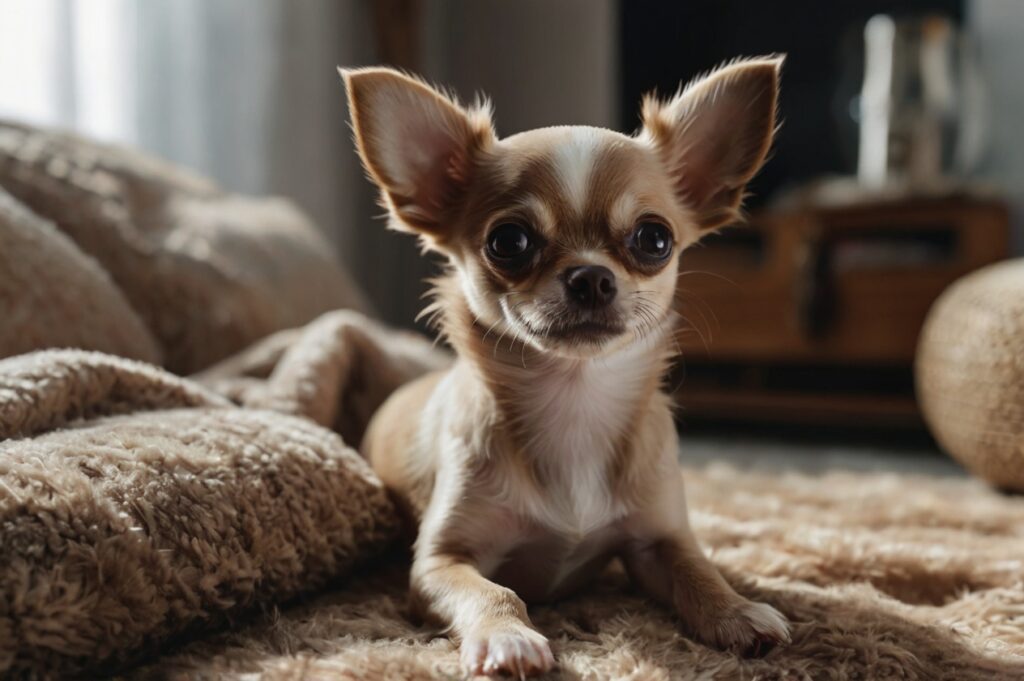
Regular veterinary care is essential for ensuring your Chihuahua puppy stays healthy. Establishing a relationship with a veterinarian early on will help you stay on top of your puppy’s health needs.
4.1 Regular Vet Visits
Regular vet visits are important for monitoring your Chihuahua puppy’s health and ensuring they receive necessary vaccinations. Schedule a vet appointment as soon as you bring your puppy home to establish a baseline for their health. Your veterinarian will create a vaccination schedule and check for any potential health issues.
Puppies require a series of vaccinations during their first few months to protect them from common diseases. Your veterinarian will also recommend preventive treatments for parasites such as fleas and worms, which are essential for keeping your Chihuahua healthy.
4.2 Spaying and Neutering
Spaying or neutering your Chihuahua is an important decision that can have long-term health benefits. Spaying (for females) and neutering (for males) can prevent certain health problems, such as uterine infections and testicular cancer, and can also help reduce unwanted behaviors such as marking or aggression.
Consult with your veterinarian to determine the best time to spay or neuter your Chihuahua puppy. The procedure is typically performed when the puppy is between 6 to 12 months old, depending on their health and development. Spaying and neutering also contribute to controlling the pet population and preventing unwanted litters.
4.3 Monitoring Your Chihuahua’s Health
Monitoring your Chihuahua puppy’s health is crucial for catching any potential issues early. Keep an eye out for any changes in behavior, appetite, or energy levels, as these can be indicators of health problems. Regularly check your puppy’s eyes, ears, and coat for any signs of irritation or infection.
If you notice any unusual symptoms, such as vomiting, diarrhea, or excessive scratching, consult your veterinarian for advice. Early intervention can help prevent minor health issues from becoming serious problems and ensure your Chihuahua remains happy and healthy.
5. Wrap Up
Proper Chihuahua puppy care involves creating a safe environment, providing consistent training and socialization, maintaining a regular grooming routine, and ensuring they receive adequate veterinary care. By taking these steps, you can help your Chihuahua grow into a well-adjusted, healthy, and happy adult dog. Remember that patience, consistency, and love are key to raising a Chihuahua puppy successfully.
Frequently Asked Questions (FAQ)
How often should I bathe my Chihuahua puppy?
Chihuahua puppies should be bathed every 3 to 4 weeks, or as needed, to keep their coat clean without irritating their skin.
When should I start training my Chihuahua puppy?
You can start training your Chihuahua puppy as soon as you bring them home. Early training helps establish good behavior and builds a strong bond.
What type of bed is best for a Chihuahua puppy?
A cozy bed with a soft blanket is ideal for a Chihuahua puppy. Make sure the bed is in a quiet, draft-free area to help them feel secure.
How often should I trim my Chihuahua puppy’s nails?
Trim your Chihuahua’s nails every 3 to 4 weeks to prevent discomfort and maintain healthy paws.
When should I take my Chihuahua puppy to the vet for the first time?
Schedule your Chihuahua puppy’s first vet visit soon after bringing them home to establish a baseline for their health and start their vaccination schedule.

